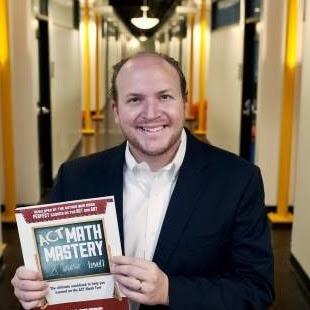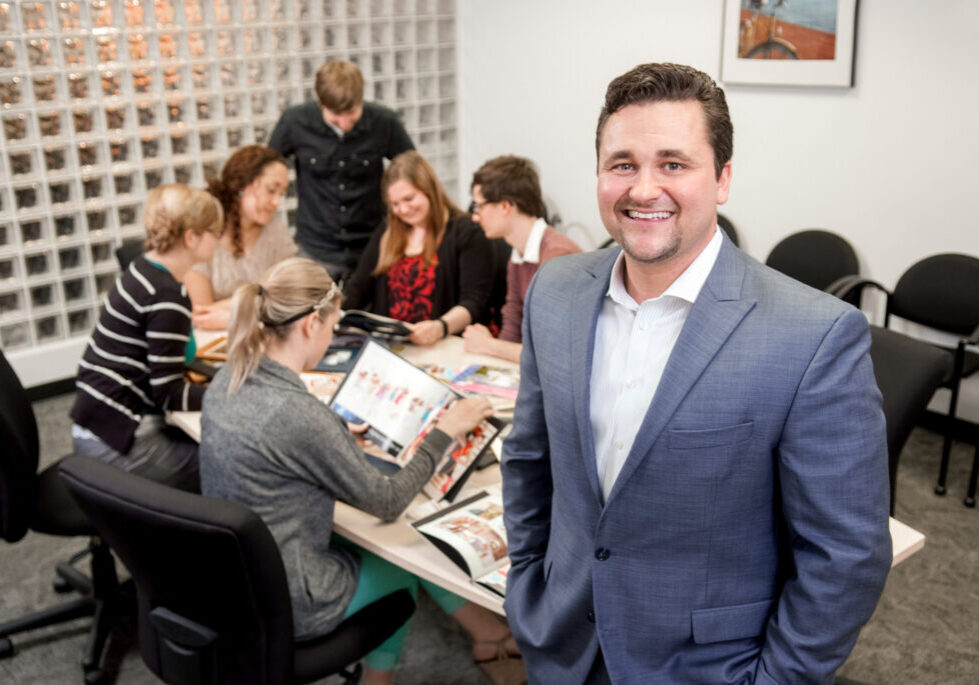It all started when Craig Gehring got perfect scores on the ACT and SAT. Parents were soon calling him to tutor their kids on standardized tests, and he’s been involved in test preparation ever since. But he says he noticed early on that there were a lot of students who needed help but whose parents couldn’t afford a tutor. The students who most needed scholarships and good scores were the least likely to get valuable test prep, he says.
This inspired him to develop his own curriculum, and soon he was running his own company, MasteryPrep. “We’re going to focus only on this thing that seems impossible,” Gehring says of the company’s focus on low-income student populations who are underachieving but have the potential to go to college, and need help with their standardized-test performance. “Underachievement is a hard problem to solve, which makes it hard to say no,” he says.
Here’s how MasteryPrep’s unique approach is helping teachers and students in underserved areas and underperforming school districts turn the tables and take on the ACT.
Identifying ‘Pathways’ for Efficient Learning Through Data
The company’s data-based approach to curriculum development helps it assemble a wide variety of learning platforms, all aimed at helping students prepare for the ACT. Gehring describes his company as “pretty geeky,” full of data scientists and tech experts. The team digs deep into tests to identify common themes that come up often to determine the best plan of action for learning.
They’ve gone over almost 70 ACT tests, analyzing thousands of questions and answers. They then take the information gleaned from those tests and map out the best “learning pathways” that identify what teachers should teach so students really do understand the concepts, Gehring says. “The best [paths] are tied to academics and core skills, things that a student has had to learn to then move up,” he says. “That research is the basis of our curriculum.”
Developing Curricula for Different Learning Styles
MasteryPrep works closely with schools and districts to ensure the material is delivered in a way that is a good fit for the students they serve.
For example, the company may offer a daylong workshop that works directly with students, or a school might purchase a license for the company app, which provides games and videos to teach different concepts. Teachers can also deliver the information themselves, backed up by online resources, training and workbooks from MasteryPrep.
MasteryPrep makes the process “awesome.” says Lauren Robinson, director of junior programs at Baton Rouge Youth Coalition, which targets students who are low-income and want to go to college. The curriculum is fun and engaging, and different products can fit different styles of learning or requirements, all with the common denominator of improving the scores of underperformers, she says. “We wanted to do a boot camp, and MasteryPrep was like, ‘yeah, we can do a boot camp,’ ” Robinson says. “They pull out all the stops.”
Some preparation programs get a bad rap for “teaching to the test” — essentially providing a curriculum of memorization rather than true understanding of a concept, idea or formula. But Gehring says his company’s approach is meant to show results even outside of standardized tests. “We’ve found that for students scoring in lower ranges, the only way to make sustainable gains is to work on their academics,” he says, and his company’s approach supports that.
Serving a Hungry Market
Gehring says he wants his company to help those who need it most — school districts with lots of underperforming students who might not have the resources to afford test preparation on their own. The company works with about 900 schools and districts, mostly in the Southeastern U.S., Gehring says.
Robinson says the company is filling a big need. “Our students are amazing, but the ACT can be really hard when they have a background where their parents haven’t gone to college and the school hasn’t prepared them for the ACT,” she says. The latest class of 40 seniors got $3 million in scholarships as a result of their test scores, Robinson says, and their average score is 4 points higher than the national average.
Robinson says even kids who test well in the first place see a difference after going through the prep, which can mean thousands of dollars more in scholarship funds. “It opens those doors.”






